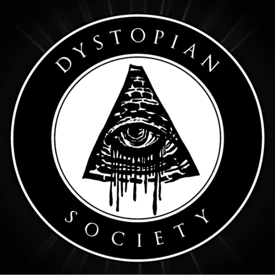Sign up for FlowVella
Sign up with FacebookAlready have an account? Sign in now
By registering you are agreeing to our
Terms of Service
Loading Flow

Dystopias: Definition and Characteristics
Simply, a dystopia is defined as a bad place, a place where no one would want to live, a place in which one's rights and freedoms would be gone, a place where the environment would be devastated. In fiction, like George Orwell’s 1984, or in movies like The Matrix, the bad place is more than a setting. The dystopia acts as a vehicle for an author's dramatic opinion about the way we live today. In this way, dystopian literature is usually crafted so that it acts as a warning to us - to stop what we are doing or face the consequences.
The term dystopia is derived from Greek and is the opposite of a utopia. Utopian literature details a good place, a perfect place - a place that does not and will not exist. Unlike a dystopia, a utopia is difficult to describe. Writers of utopian literature are often caught in a pickle: the perfect place for one is never the perfect place for all. Because of this, the term "utopian" can be used outside the literary world to negatively describe a concept or belief as naive and idealistic.
A dystopia, on the other hand, generally has widespread appeal to audiences because it plays upon our deepest fears - a loss of life, liberty, and happiness.
Characteristics of a Dystopian Society
o Propaganda is used to control the citizens of that society.
o Information, independent thought, and freedom are restricted.
o A figurehead or concept is worshipped by the citizens of the society.
o Citizens are perceived to be under constant surveillance.
o Citizens have a fear of the outside world.
o Citizens live in a dehumanized state.
o The natural world is banished and distrusted.
o Citizens conform to uniform expectations. Individuality and dissent are bad.
